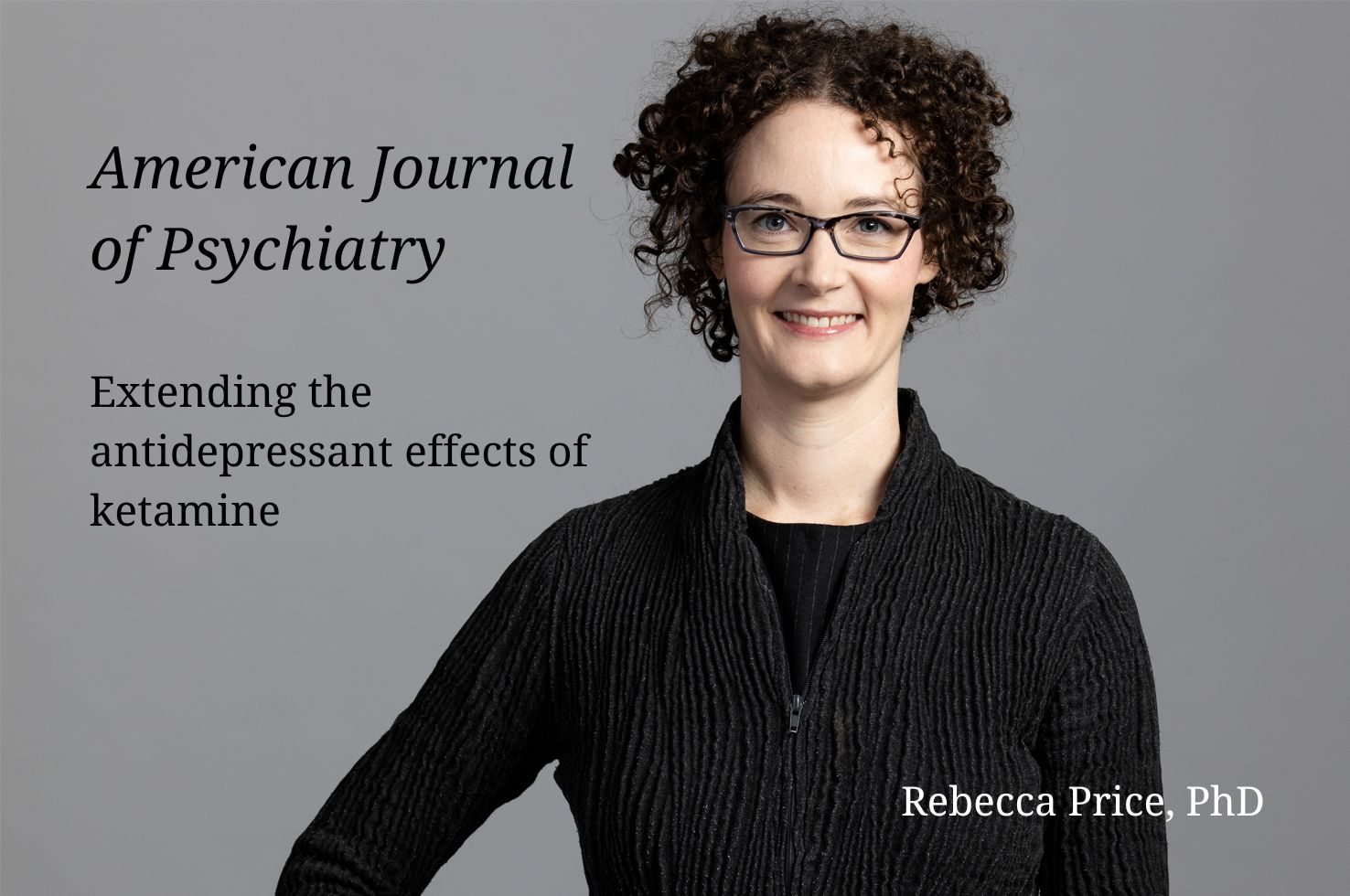A Novel, Brief, Fully Automated Intervention to Extend the Antidepressant Effect of a Single Ketamine Infusion: A Randomized Clinical Trial

Depression is one of the most prevalent and costly mental health conditions. Though effective treatments have been available for decades, remission rates are low, relapse rates are high, and disorder prevalence rates remain notably consistent or increased, with only 12.7% of patients receiving minimally adequate treatment. In recent years, two potential breakthroughs have ignited hopes for turning a corner in the clinical management of depression: intravenous ketamine and neurocognitive computer-based trainings designed to modulate affective processing patterns in order to reduce symptoms.
A group of investigators including Pitt scientists Rebecca Price, PhD (Associate Professor of Psychiatry and Psychology), Meredith Wallace, PhD (Associate Professor of Psychiatry, Statistics, and Biostatistics), and Robert Howland, MD (Associate Professor of Psychiatry), tested whether an automated, low-cost computer-based approach could efficiently leverage enhanced neuroplasticity following ketamine to extend the durability of rapid clinical response to intravenous ketamine treatments. They published the results in The American Journal of Psychiatry.
One-hundred fifty-four adults, ages 18–60, with treatment-resistant unipolar depression participated in a randomized, double-blind trial. Participants received a treatment combination of ketamine plus active “automated self-association training”, which targeted self-worth through computer-based positive conditioning exercises designed to systematically build associations between oneself and positive attributes, or one of two controls that lacked either ketamine or the training. One day after the infusion of intravenous ketamine or a placebo saline injection, the training or a sham training (consisting of identical computer tasks that included no positive or self-referential stimuli) was initiated and given twice daily over four consecutive days in 20-minute sessions.
Findings from the study showed that over the entirety of a one-month assessment period after the infusion, individuals who received ketamine and the positive trainings reported fewer depression symptoms than those who did not receive the positive training or who did not receive the ketamine, suggesting that the positive training roughly tripled the duration of ketamine’s antidepressant effects.
“The need for depression treatment currently far outpaces the supply, meaning that we need to develop and test novel approaches that can efficiently produce relief from suffering, and keep it at bay. We hope that with further replication and extension of these initial findings, this new combination intervention will represent one such approach,” said Dr. Price, the study’s first author.
A novel, brief, fully automated intervention to extend the antidepressant effect of a single ketamine infusion: A randomized clinical trial
Price RB, Spotts C, Panny B, Griffo A, Degutis M, Cruz N, Bell E, Do-Nguyen K, Wallace ML, Mathew SJ, Howland RH
American Journal of Psychiatry, September 21, 2022, https://doi.org/10.1176/appi.ajp.20220216
